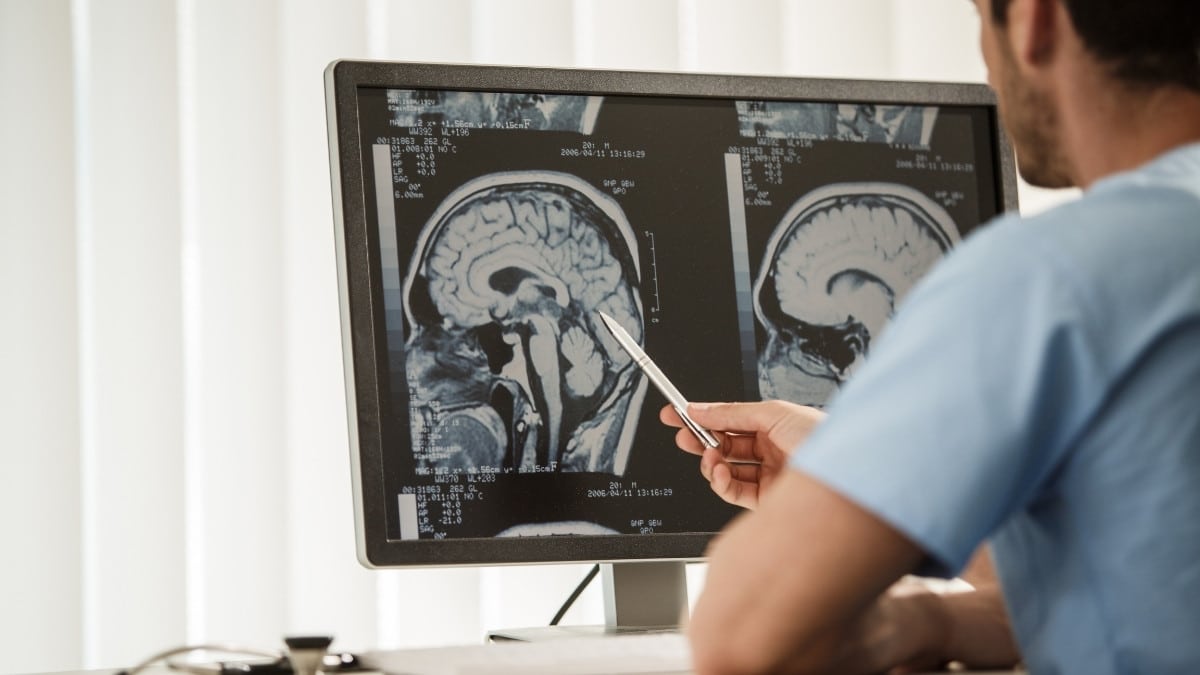There are numerous brain tumor warning signs, but not all people with brain tumors experience all of them. Also, brain tumor symptoms vary based on the location in the brain where it is developing and also the size of the tumor.
Read on the complete blog and get to know some general brain tumor warning signs, along with the symptoms that provide an indication of the location of the tumor. By the end of this blog, you will have adequate knowledge to recognize the signs of brain tumors and receive early treatment.
What Are Brain Tumors?
A brain tumor is a cluster of cells that grow beyond control in your brain. There are several types of brain tumors; some of them are benign, while others are malignant. When brain tumors start in the brain, they are called primary brain tumors.
They are considered secondary brain tumors when they start from somewhere else in your body and spread to the brain. Secondary brain tumors are also called metastatic brain tumors and are relatively more common than primary tumors.
General Brain Tumor Warning Signs To Watch Out For
Brain tumor symptoms depend upon tumor location, type, and size. The symptoms can be experienced when a tumor puts pressure on a nerve or damages a part of the brain. The symptoms can also be experienced when a tumor obstructs the fluid that flows through and around the brain or when the brain swells up due to the accumulation of fluid.
The most common brain tumor warning signs include:
Headache Changes
Headaches that worsen over time are a common symptom that affects nearly 50% of people with brain tumors. Brain tumors can exert pressure on sensitive nerves or blood vessels. This may result in new headaches or changes in your old pattern headache, including:
- You experience persistent pain, but it’s not like a migraine.
- It is more severe when you first wake up in the morning.
- It gets worse when you exercise, change position, or even cough.
- It is often accompanied by vomiting or neurological symptoms.
- Over-the-counter medications fail to cure your headache.
Even if your headaches are more frequent or are worse than they used to be, it doesn’t necessarily mean that you have a brain tumor. There are various possible causes of headaches, including inadequate sleep, skipping meals, stroke, concussion, etc.
Seizures
Seizures are often the first sign of a brain tumor, but they can happen at any stage. Studies suggest that about 50% of people with brain tumors get seizures at least once.
Brain tumors put a strain on nerve cells in the brain. This can obstruct the electrical signals, resulting in seizures. One thing to note is that seizures don’t always stem from the brain tumor. Other common causes of seizures include brain diseases, drug withdrawal, neurological problems, etc.
Memory loss and Confusion
Memory problems can result due to tumors in the frontal or temporal lobe. It can also affect your reasoning and decision-making ability. You may find that:
- You usually get confused over the simplest matters.
- It’s difficult to concentrate, and you easily get distracted.
- You experience short-term memory loss.
- You have trouble planning anything, and you are unable to multitask.
These problems can occur with a brain tumor of any stage. It can also be caused as a side effect of radiation therapy, chemotherapy, or any other cancer treatments. Fatigue can exacerbate these problems.
Some of these cognitive problems can occur for several reasons other than a brain tumor, including emotional disorders, vitamin deficiencies, certain medications, or other factors.

Personality Changes or Mood Swings
Brain tumors can interfere with your brain functioning, thus affecting your personality and behavior. You may also have unexplained mood swings. For instance:
- You used to be a go-getter, but now you have become passive.
- You were someone who is super easy to get along with, but now you easily get irritated over little things.
- You are happy and relaxed for one minute, and then you initiate an argument with people for no apparent reason.
These brain tumor symptoms are usually caused due to the tumor in the frontal lobe, the temporal lobe, or certain parts of the cerebrum. These symptoms can occur quite early but can also be caused due to various cancer treatments.
Personality changes and mood swings may also be caused due to substance abuse, mental problems, or any other disorders affecting the brain.
Depression
Depression is one of the most common brain tumor symptoms. Even loved ones or caregivers can have depression during the treatment period. The symptoms may include:
- Lack of interest in things or activities you used to enjoy
- Feelings of sadness persisting longer than what appears normal for the situation
- Thoughts of suicide or self-harm
- Feelings of worthlessness guilt
- Lack of energy, difficulty sleeping, insomnia
Fatigue
Fatigue is different from just feeling tired once in a while. It can cause some of the following symptoms:
- You are unable to concentrate at all
- You are easily irritated
- You feel completely exhausted almost all the time
- You feel very weak, and your limbs feel heavy
- You often fall asleep in the middle of the day
Malignant tumors often cause fatigue, but they can also be caused as a side effect of cancer treatments. Other conditions leading to fatigue include neurological disorders, anaemia, autoimmune diseases, etc.
Nausea and Vomiting
Since brain tumors cause hormonal imbalance, you can experience nausea and fatigue in the initial stages. Cancer treatments such as chemotherapy used to treat brain tumors can cause nausea and vomiting as side effects.
Various other factors can also cause nausea and vomiting, including influenza, pregnancy, food poisoning, etc.
Numbness and Weakness
As your body is fighting brain tumors, you can experience weakness. Some cases of brain tumors also cause numbness or tingling in the feet or arms.
This usually happens in only one side of the brain and indicates tumors in specific parts of the brain.
Numbness and weakness can also be experienced as side effects of cancer treatment. Other conditions which can lead to these symptoms include diabetic neuropathy, and multiple sclerosis, Guillain-Barre syndrome.
Brain Tumor Warning Signs Based On Tumor Location
Some brain tumor symptoms can provide you with insights regarding the location of the tumor.
The trouble with movement in the arms, feet, hands, and legs, or trouble walking can indicate a tumor in or around the:
- Frontal lobe
- Cerebellum
Speech, reading, and writing difficulties:
- Certain parts of the cerebellum
- Certain parts of the cerebrum
- Parietal lobe
- Temporal lobe
Vision problems:
- Occipital lobe
- Pituitary gland
- Temporal lobe
- Optic nerve
Hearing problems:
- Near cranial nerves
- Temporal lobe
Swallowing problems:
- In or near cranial nerves
- Cerebellum
When Should You Consult A Doctor?
If you experience some of the above-mentioned symptoms does not always indicate a brain tumor, but you should consult your healthcare provider anyway.
As these symptoms overlap with several other conditions, it becomes imperative to get the correct diagnosis. For many health conditions, early diagnosis and treatment play a crucial role in keeping the disease from worsening, and so you should avoid any delay.
Schedule an appointment with your healthcare provider. Getting the underlying cause determined is the first step toward getting the appropriate treatment.
Also Read: Chemotherapy: A Miraculous Cancer Treatment That Helps Save Lives
How To Prevent Brain Tumor?
There is no definite way to prevent brain tumors. However, early diagnosis can help minimize the risk of complications. Surgical removal of tumors in or around the brain in the early stages can decrease the risk of cancer.
Measures that can aid in preventing the risk of tumors are:
- Undergo screening tests as per recommendations
- Have an adequate sleep
- Maintain a healthy lifestyle
- Limit the use of mobile devices
- Try ketogenic diet
- Include foods rich in antioxidants such as orange and yellow vegetables (carrots, tomatoes, and pumpkin), garlic, citrus fruits, and apricots
- Maintain a healthy body weight
- Avoid processed foods
- Quit smoking
- Limit alcohol intake
You can even take help of medications for alcohol use disorder: Disulfiram(Dizone).
Have a look!











